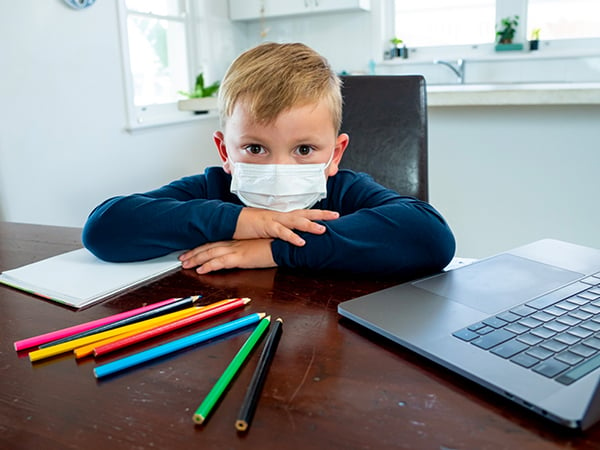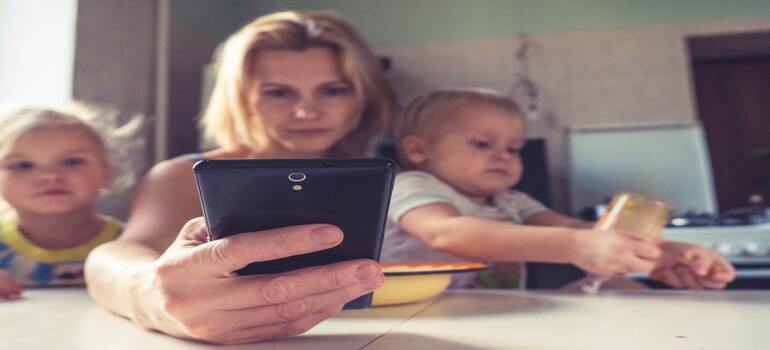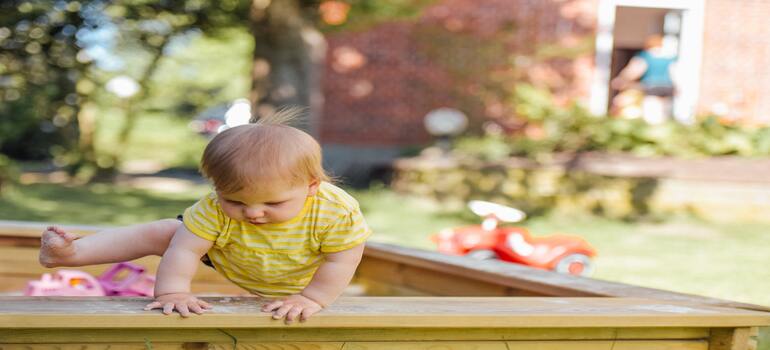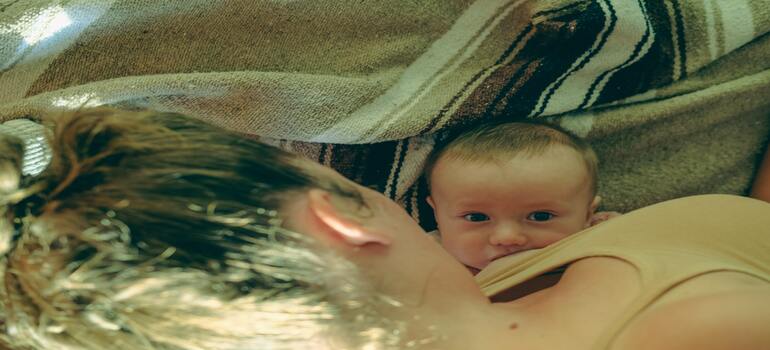Impact of Covid-19 on a Child's mental health

- April 7, 2021
- MKB Team
“Due to Corona we can't mix with friends. We are in a lot of trouble. Mother and father are in a lot of trouble.” – 12-year-old girl, Bangladesh.
“We’ve only heard about the COVID-19 rules, and they’ve only increased panic. They were also only dealing with political issues. No one bothered about our mental and physical health.” – 11-year-old girl, Kosovo.
In 2019, the outbreak of the coronavirus in Wuhan, China and its gradual spread across the world created a global pandemic which changed our lives for the worse. Reports of August, 2020 indicate that the coronavirus had spread to more than 216 countries with at least 21,756,357 confirmed cases, resulting in 771,635 deaths around the world. This pandemic became a national emergency as millions of people had to go into lockdown. This led to the disruption of schedules globally, especially among children. Schools were closed, and education became home-based in the form of online learning. This transition from physical learning to online learning has caused a potential risk to the mental well-being of children all over the world. This can be attributed to limited social interaction, a sudden change in the learning environment and being confined to closed spaces. This is more than enough to cause damage to developing brains and negative feelings increased in children because of COVID-19. 96% of children expressed increased negative feelings when schools were shut down for 17-19 weeks, as compared to 62% of children when schools were closed for 1 to 4 weeks. This clearly illustrates how important it is for kids to be in close contact with their friends and play outdoors for their overall emotional wellbeing.
As of August 18th, 2020, 143 countries have shut down schools and educational facilities, impacting as many as 1,184,126,508 students. This makes up of almost 67.6% of the global student population.
It is important for parents to understand that many mental health disorders begin during childhood.
Also, kids with pre-existing psychiatric disorders such as attention-deficit/hyperactivity disorder (ADHD), anxiety, depression, mood disorders, and behaviour disorders could be adversely impacted during this unwanted situation that will cause more stress unless special efforts are undertaken. 15% of children and adolescents in the world have mental health disorders or conditions. 50% of mental disorders affect children by the age of 14. If the same is not treated, a child's mental development is negatively impacted. Mental health is an important part of human development and enables a child to achieve educational milestones and to live a happy and productive life.
As most parents are under financial pressure in this crucial juncture as well, the need to prioritise their children over other things is paramount. Positive parenting is the need of the hour.
The children who are most vulnerable are the youngest ones as their brains are still developing. When they are exposed to such high levels of stress and isolation, their development is adversely affected.
Also, children may inherit the worries of the parents like their financial woes and this might cause insecurity and emotional disturbance in them. Studies have also shown that the children who have the least information about COVID-19 or quarantine measures are prone to the most anxiety and depression. Hence, both parents and school authorities must expose the children to adequate information about COVID-19 so that they comprehend the implications of the same. This helps lessen the negativity in their little minds about COVID-19 and quarantine. Local and national governments also have a vital role to play here in creating awareness about COVID-19 through various mediums for kids and adults alike.
To help children become stronger, they must be taught coping mechanisms at home by parents so that they are in control of their own emotions without depending on others. Behavioural activation helps reach this goal where the focus is to participate in activities that the children enjoy without any form of avoidance. Engage in healthy behaviour to teach them problem-solving skills. Children will flourish in the pandemic if they are taught to be self-reliant and learn how to help themselves. This will also help them in the uncertain future.
Was this article helpful for you? Let us know a unique way you helped your child to fight depression during the pandemic. Write to us with your tips, suggestions and questions. We will only be happy to address them.
Q&A
You ask and we answer!
Is there a difference on how COVID-19 affects children as compared to adults?
Falguni Barat, Jorhat.
Although there is limited data currently, the initial signs indicate that clinical manifestations of COVID-19 are generally milder in children compared with adults. But if affected, some children also require hospitalisation and intensive care. Relatively few cases of infants confirmed to have COVID-19 have been reported and those who are infected have experienced mild illness. However, robust evidence associating underlying conditions with severe illness in children is still lacking as of now.
Are children with underlying health conditions at higher risk for COVID-19?
Professor Subhadra Mishra, Bhillai.
Current evidence suggests that people with underlying conditions such as chronic respiratory illness including asthma (moderate-to-severe), obesity, diabetes or cancer, are at higher risk of developing severe disease and death than people without other health conditions. This also appears to be the case for children, but more information is still needed to validate this.
Are children at lower risk of COVID-19 than adults?
Preeti Datta, Mumbai.
So far, the data that we have now suggests that children under the age of 18 years represent about 8.5% of reported cases, with relatively few deaths compared to other age groups and usually mild disease. However, cases of critical illness have also been reported in some parts of the world. As with adults, pre-existing medical conditions have been suggested as a risk factor for severe disease and intensive care admission in children. Further studies are underway currently to assess the risk of infection in children and to better understand transmission in this particular age group.
Published by
MKB Team
200 Articles
MomsKnowBest is a fast-growing vibrant community of moms, for moms, by moms. Motherhood is complex fun, fulfilling, grueling, exhausting and very complex. There’s no handbook to it. And let’s face it – moms are put...
Read MoreShare with your friends!
Leave a Comment
Trending Post
Myth Buster: Having iron tablets makes your child...
Busting Top 10 Pregnancy Myths about having Iron Tablets
One of the Top 10 pregnancy myths is that...
Health Benefits of Pomelo For Moms To-Be & Kids
During pregnancy, women need proper nutrition to support their health as well as the growth of the...



